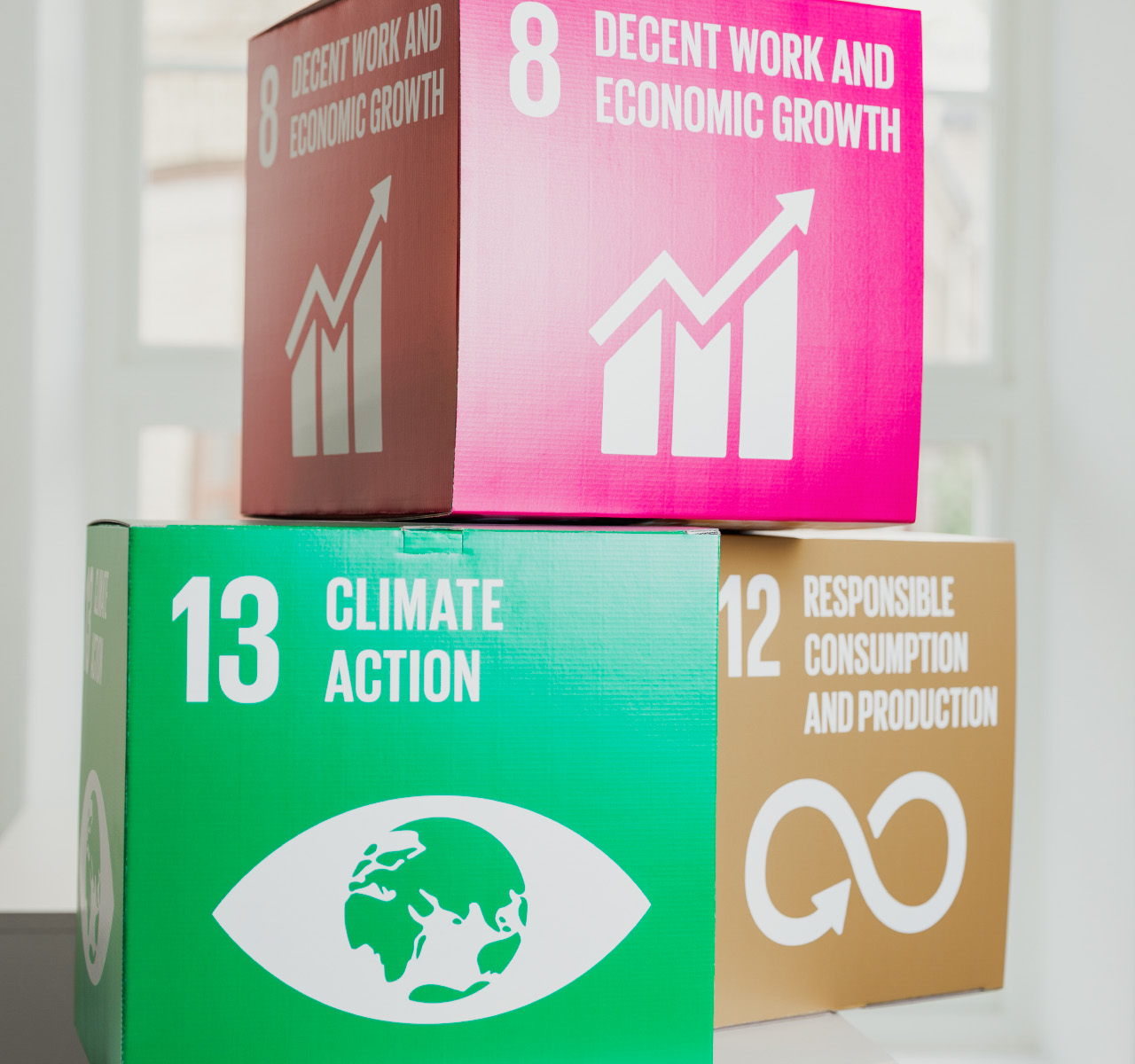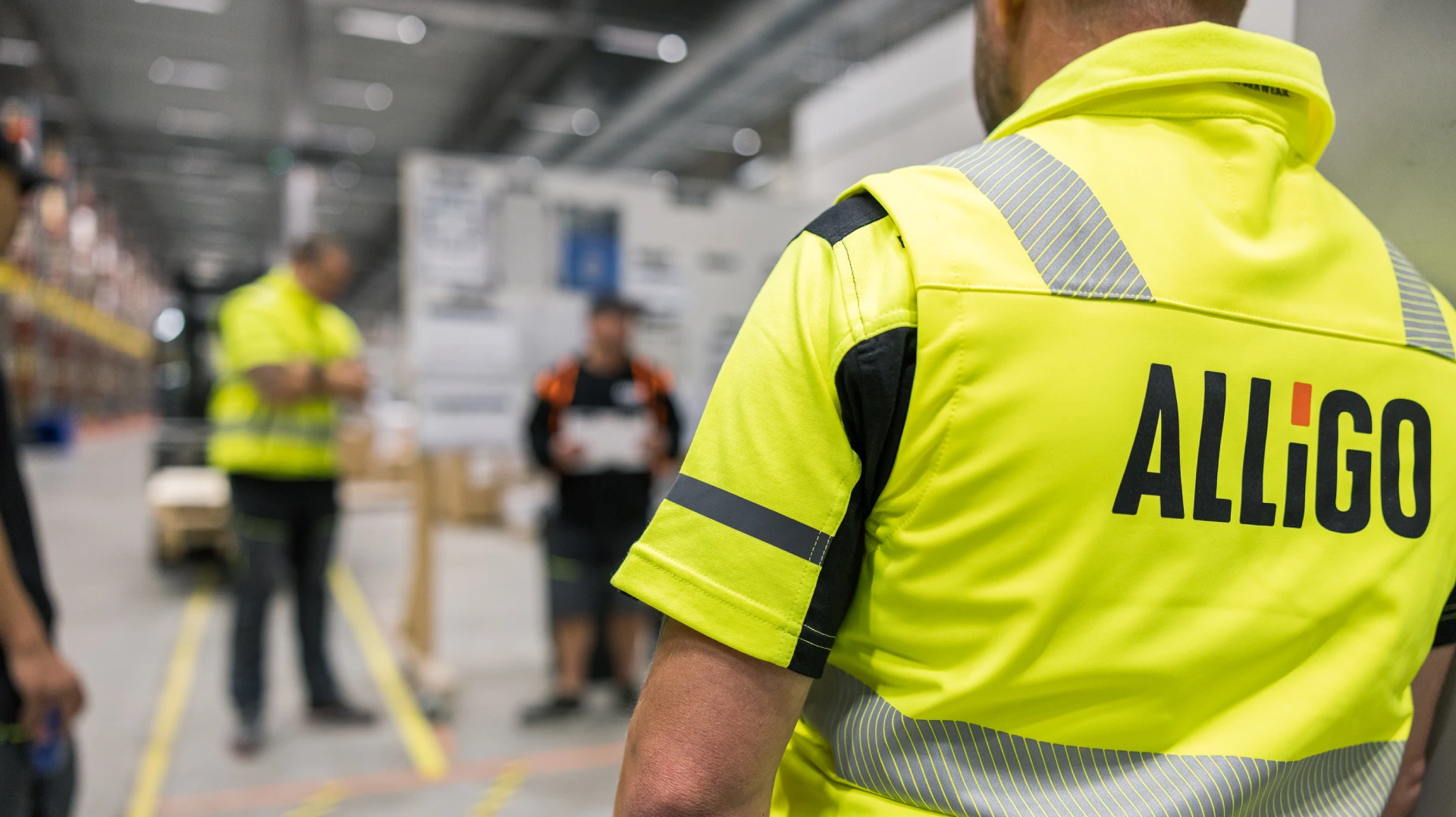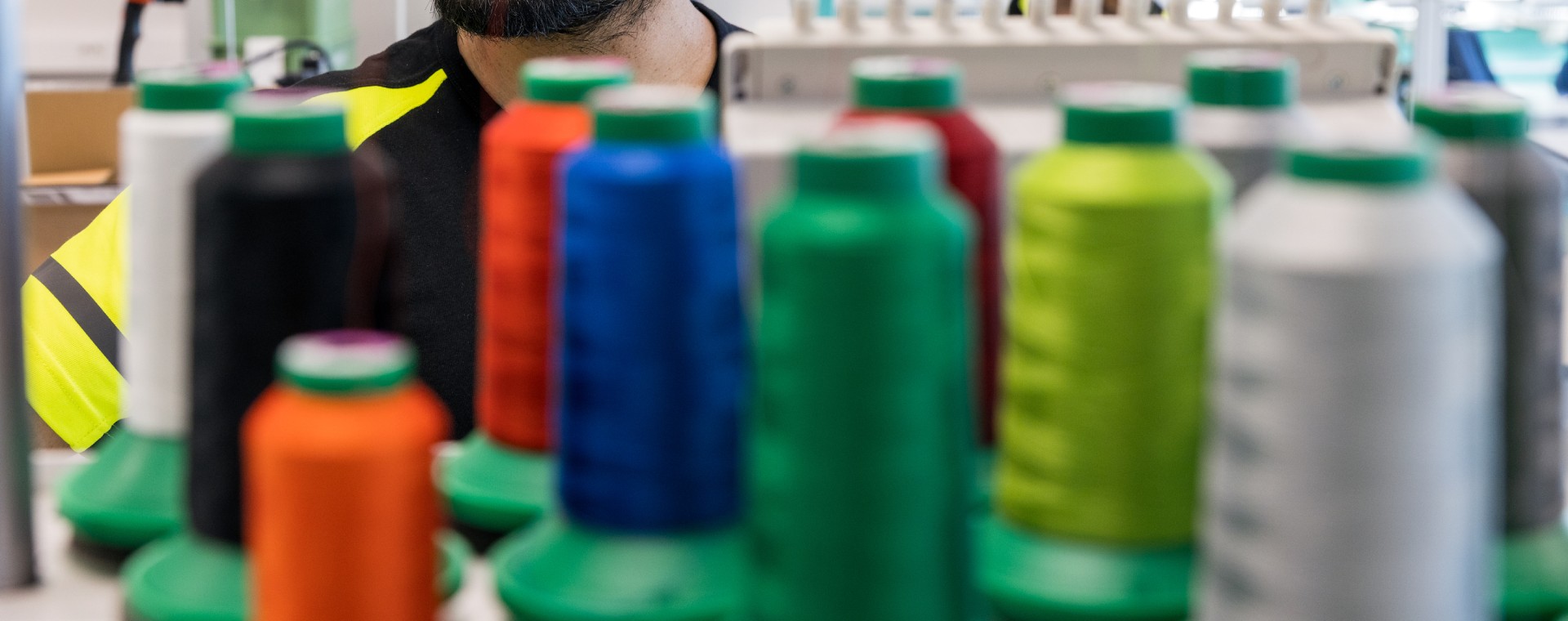
FAQ Sustainability
Strategy, Governance, and Targets
What is Alligo’s sustainability strategy?
Sustainability is an integral part of Alligo’s strategy and business planning. Our ambition is to be unbeatable as a leader in sustainable development within our industry, and we view it as a key factor for both responsibility and long-term profitability. We proactively identify trends, risks, and opportunities related to sustainability to create value for our customers, employees, and society
What are Alligo’s sustainability goals?
Alligo has several sustainability targets that contribute to our ambition to be unbeatable as leaders in sustainable development within our industry. The double materiality analysis forms the basis of our work on material issues within the environment, social responsibility, and governance. Our targets are followed up quarterly or annually and presented in the Annual and Sustainability Report.
- Environment: Alligo’s science-based climate targets to reduce carbon emissions approved by the Science Based Targets initiative (SBTi):
- Scope 1 and 2: Reduce absolute greenhouse gas emissions by 42 percent by 2030, calculated from the base year 2023
- Scope 3: The proportion of suppliers with science-based targets should reach at least 72 percent by 2029
- Society: Alligo’s targets within Social Responsibility include reducing sickness absence, a zero vision for workplace accidents, increasing employee engagement, and increasing the proportion of women in management positions. We also have targets for responsible supplier relationships linked to our supplier standard. Product safety targets are measured through annual customer satisfaction surveys.
- Governance: Targets for responsible business include zero tolerance for bribery and corruption, as well as mandatory training for employees in anti-corruption and business ethics.
What policies govern Alligo’s operations?
The Code of Conduct is one of the cornerstones of Alligo’s corporate culture and is a central policy document for internal sustainability work. The code is complemented by several group policies based on international conventions and guidelines, such as the UN Global Compact, the UN Guiding Principles on Business and Human Rights, the OECD Guidelines for Multinational Enterprises, the ILO’s Core Conventions and the Children’s Rights and Business Principles
Who is responsible for governing Alligo’s strategic sustainability work?
The Board of Directors is ultimately responsible for Alligo’s sustainability work and its impact on the economy, environment, and society. The Audit Committee reviews the sustainability reporting process and ensures that Alligo complies with current laws and regulations.
The strategic sustainability work is governed by the Group Management, with overall responsibility resting with the Business Development and Sustainability Manager. The operational work is led and coordinated by the Group’s Sustainability and Quality Department.
Does Alligo have a certified management system?
Alligo’s integrated operations in Sweden and Norway are certified according to ISO 14001 for the environment, ISO 9001 for quality, and ISO 45001 for occupational health and safety. Management functions and logistics operations in Finland are certified according to ISO 14001 for the environment and ISO 9001 for quality. Work is ongoing to certify stores. Several of Alligo’s non-integrated companies have their own certificates in environment and quality.
Product responsibility and environmental impact
Does Alligo provide climate data for its products?
Alligo can provide customer-specific information related to purchased products based on sales statistics and expenses per product category.
How does Alligo work with product responsibility and chemicals?
Alligo’s agreements with suppliers include chemical requirements via chemical restriction lists that are regularly updated. Products under our own brands meet requirements through tests and certifications and comply with applicable legislation. The Group continuously works to limit and phase out unwanted chemicals.
How does Alligo reduce the environmental impact and extend the lifespan of its textile products?
Alligo reduces environmental impact, for example, by using Dope-dye as a dyeing process for polyester, ensuring water purification, increasing the proportion of recycled polyester, and phasing out PFAS substances. Alligo’s products are durable and of high quality.
What do OEKO-TEX® STANDARD 100 and OEKO-TEX® MADE IN GREEN mean for Alligo’s products?
OEKO-TEX® STANDARD 100 ensures that textile products do not contain any harmful chemicals. The certification requires that each component is tested and approved. OEKO-TEX® MADE IN GREEN verifies that the garments have been tested for harmful chemicals and produced according to the label’s requirements for environmental and social responsibility.
How does Alligo address PFAS in its products?
Alligo is a member of Chemsec’s PFAS movement and works to regulate and phase out PFAS. OEKO-TEX® has introduced a total ban on all intentional use of PFAS.
What eco-labels do Alligo’s products have?
Eco-labels are available on Alligo’s e-commerce sites to help customers make informed choices. Products under the Swedol brand are registered with BASTA.
Responsible Supplier Relationships
How does Alligo ensure responsibility in the supply chain?
Alligo focuses on improving conditions for workers in the value chain by setting requirements for suppliers and following up on their performance. The Supplier Code is part of all new contracts with suppliers and includes associated chemical restriction lists. We conduct risk assessments of new and existing suppliers regarding working conditions, human rights, environment, and corruption based on well-established indexes. Suppliers must also conduct self-assessments via an external platform.
Alligo is a member of amfori BSCI, and at factories where Alligo’s own products are manufactured, third-party audits are carried out according to amfori BSCI’s audit program to ensure compliance with the requirements through the Code of conduct.
How does Alligo’s whistleblower function work?
Alligo’s whistleblower function is a channel for reporting suspected irregularities or legal violations anonymously. The function complies with the requirements of national legislation and the EU Whistleblower Directive. As members of amfori BSCI, our own whistleblower function is extended with amfori BSCI’s, which is available in several languages via their website.
How does Alligo manage conflict minerals in its products?
We set requirements on conflict minerals in our products through our Supplier Code of Conduct based on legislation and international guidelines. Suppliers must have control over their supply chain and ensure that conflict minerals do not come from prohibited sources. Suppliers must support us in mapping our supply chain regarding conflict minerals.
Transport and waste management
What actions does Alligo take to mitigate the environmental impact of its transport?
Alligo set contractual requirements on transport providers to reduce their environmental impact and improve their environmental performance. The Group’s largest transporters have joined the Science Based Targets initiative (SBTi).
How does Alligo handle waste and recycling?
Alligo has routines for sorting and handling waste and hazardous waste. The waste is collected by a licensed waste contractor.


